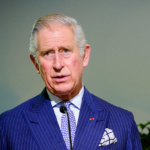Ratcliffe trial: a defendant tells the tale

Soaring ambitions
Being arrested and charged with a crime you didn’t commit is far less glamorous in real life than in the movies. It happened to me just before midnight, on April 12th 2009. I was huddled in my sleeping bag on a cold school floor in Nottingham when the police burst in to arrest me and 113 others in a highly controversial ‘pre-emptive’ raid on a meeting of climate campaigners. It was the biggest pre-emptive environmental protest arrest in British history, and the starting point for a truly bizarre sequence of events involving a ‘conspiracy to commit trespass’, an undercover police officer, a world-famous climate scientist, a coal-fired power station, two crown court trials, a spectacular legal U-turn and the greatest piece of climate activism that never was. Let me explain.
Back in early 2009, I was discreetly invited along to a special climate action meeting. To preserve maximum secrecy, we were given few details in advance: all I knew was that an action was being planned relating to coal and climate change. To learn more I needed to meet an early-morning minibus on Sunday April 12th, which would take me to a day-long briefing. After the briefing, I’d be able to decide whether or not to take part in the action, which would start the next day.
Apparently, attending a meeting and listening to some action briefings was enough for me to be arrested, photographed, fingerprinted, have my DNA taken, and be held in a police cell for nearly 20 hours.
Our meeting-place turned out to be a series of rooms round the back of a school in Nottingham, which were soon packed out with over 100 people from all over the country. Most, like me, knew no details of the proposed action until the briefings began. The fact that so many people had chosen to heed a climate action call-out based on trust alone impressed me greatly: the UK climate movement was clearly growing both in numbers and determination.
The plan was jaw-droppingly audacious: to invade and occupy Ratcliffe-on-Soar, the second-largest coal-fired power station in the country, and ‘calmly but firmly’ shut it down for a week. Briefings throughout the afternoon and evening laid out the plan in detail; we were shown how to use climbing equipment and lock-on devices, told our legal rights and given exhaustive health and safety information. Apparently, shutting the power station for a week would prevent the release of 150,000 tonnes of climate-wrecking CO2, saving lives, homes and livelihoods around the world. No-one in the UK would lose electric power while the station was shut down, thanks to the National Grid.
A premature ejection
Finally, at half eleven in the evening, the briefings drew to a close and I found a spot to curl up in my sleeping bag and collect my thoughts. The action was due to happen the next day: would I be joining them?
We’ll never know the answer to that question, because at that moment there was a banging at the door, and several hundred police officers smashed their way into the school. The lights went up, and before I knew what was going on the room was full of nervous-looking cops and there was a pair of handcuffs on my wrists. We were held there for what seemed like hours as the police tramped around the building barking into their radios, but eventually all 114 of us were shepherded into police vans. Apparently, attending a meeting and listening to some action briefings was enough for me to be arrested, photographed, fingerprinted, have my DNA taken, and be held in a police cell for nearly 20 hours. All 114 arrestees had their phones, wallets and money confiscated, before being released onto the streets of Nottingham in the middle of the night. Many people also had their homes raided or were given restrictive bail conditions.
As if all of this wasn’t dramatic enough, we now know that one of the 114 at the meeting was not what he seemed: he was, in fact, undercover police officer Mark Kennedy of the National Public Order Intelligence Unit. He had been living a secret double life as environmental activist ‘Mark Stone’ for the previous six years.
The punishment lottery
It gets stranger. All 114 of us were initially charged with the unusual crime of ‘Conspiracy to Commit Aggravated Trespass’ – a charge that had never before been tried in a British court, and so required special permission from the Attorney General. Over the following year, charges were dropped against 88 of the arrestees, leaving 26 of us ‘lucky winners’ to face trial at Nottingham Crown Court (while Aggravated Trespass is a minor crime normally dealt with by a magistrate, anything involving Conspiracy has to go in front of a jury at the Crown Court). Exactly why this particular group of 26 was singled out has never been explained by the prosecutors; there was no obvious common factor to distinguish us from the rest of the 114.
It turned out that twenty of the remaining defendants had indeed been intending to go on the action – they’d either been involved in the earlier planning stages before the meeting, or had made up their minds upon hearing the briefings. These twenty declared that they were still not guilty of any crime, because their actions would have been legally justified: the emissions from coal power stations cause climate change, leading to death and destruction around the world. This means that temporarily closing one down would prevent a far greater crime from occurring and thus be justified in law. Against all the odds, they persuaded the judge to allow this defence to be run, and their trial date was set for November 2010.
The outing
Our defences were submitted in early 2010 and we spent the rest of that year furiously preparing for our respective trials, each slated to last around three weeks. But then things took another unlikely twist. By October 2010, some friends of Mark ‘Stone’ had grown increasingly suspicious about his comings and goings. They investigated, and discovered documents in his real name. They then confronted him, and he confessed that he had indeed been a serving police officer from the time he turned up in Nottingham in 2003 until at least 2009, including the time of the Nottingham arrests.
This was a shocking revelation for the UK climate movement. Officer Kennedy – in his role as Mark Stone – had been present at almost every major environmental protest of the last seven years. I’d encountered him once or twice – he seemed to be a trusted and useful activist, particularly with regard to his driving and climbing skills.
I now know (from some of my fellow arrestees) that he had been involved in planning the Ratcliffe-on-Soar action from the very beginning. It turns out that when a small group of people first hatched the power station invasion plan back in January 2009, they needed a trusted driver to help them scope out the site – so they gave Mark Stone a call. He showed them round the location, pointing out useful access points and footpaths, and helped make a film of the site to show at the April briefing day. He was also lined up for some key roles in the action itself. According to one of the other arrestees, Mark was going to drive people to the power station and then climb under the coal conveyor belt, suspending himself there to prevent it being switched back on. He was at the whole of the Sunday briefing, apparently preparing himself for these roles, and was arrested with everyone else when the police arrived.
Failures of justice
Once we’d got over the initial shock, we realised that this had serious implications for the six of us in the second trial. Kennedy was at the Nottingham school for the whole of that April briefing meeting, and must have submitted some kind of report of the day to his superiors. That report would show that most people at the meeting didn’t know the plan in advance, and be of great use in our defence. Surely the prosecution must have known that this evidence existed – which means they must have chosen to conceal it and continue with the case regardless.
People involved in our defence made some attempts to contact Kennedy (who was now apparently in the US) by email to see if he would be willing to provide material himself to support our case. He initially seemed willing, claiming that he wanted to ‘do the right thing’, but then later withdrew the offer. To be honest, we’d never really expected him to help – we’re not so foolish as to trust the guy an inch – but his emails suggested that he had indeed provided the police with evidence that would support our defence. Our lawyers sent an initial disclosure request to the prosecution, asking that they provide that evidence.
Meanwhile, the first twenty defendants were launching into their own trial, explaining that their plan to occupy a power station was justified in law. Theyran a powerful defence, backed up by a hard-hitting team of expert witnesses including world-renowned climate scientist James Hansen. Over three weeks of evidence, they showed that they were planning to close the power station carefully and safely, in order to prevent real and measurable damage from climate change. It’s well worth reading the full story of their trial (and the Bright Green coverage).
Unfortunately, despite a highly positive summing-up by judge Jonathan Teare, they were eventually found guilty. Teare, who had clearly been very impressed by their defence, said he was handing down the most lenient sentences that he could (mostly conditional discharges, some community service and some costs), and told them ‘You are all decent men and women with a genuine concern for others’ and ‘I have no doubt that each of you acted with the highest possible motives’.
When tactics collide
This is a story woven from many different tangled (and unusual) threads, so it’s hardly surprising that the mainstream media have struggled to get their facts straight. Some outlets have been wrongly reporting that the case was withdrawn because Kennedy was about to speak up in our defence. In fact, he did no such thing – we were rescued from a wrongful prosecution by the courageous activists who exposed Mark Kennedy back in October. If they hadn’t uncovered him, we’d have never known about the crucial missing evidence in our case and we’d still be on trial at Nottingham Crown Court at this very moment. This, then, is a story about one repressive police tactic (mass pre-emptive arrest and conspiracy charges) being undermined by a different repressive police tactic (the infiltration of the UK environmental movement).
The presence of Kennedy from the earliest stages of the planning of the Ratcliffe action throws up further worrying questions: if the police wanted to prevent the power station invasion, why didn’t they use Kennedy’s information to halt the action easily (and cheaply) in January 2009, when only a few people were involved? Instead, they waited until 113 campaigners (and one police officer) were gathered in one place, and launched a mass arrest costing hundreds of thousands of pounds, followed by a lengthy and expensive legal process. Why else would they do this, other than to gather information on climate campaigners (including names, addresses, photos, fingerprints and DNA), and to try to deter as many people as possible from future involvement in political direct action?
A heavy hand
This fits neatly into the now-familiar pattern of the excessive policing of protest across the board. From the unlawful blanket stops-and-searches, surveillance and mass confiscations of protesters’ property at the Kingsnorth Climate Camp in 2008, to the lethally aggressive policing of the G20 protests in 2009, to the 2010 student protests where schoolchildren were held in freezing conditions for hours, unarmed students were beaten and charged with horses and one protester was dragged violently out of his wheelchair; these are the tactics we have come to expect from a police force that seems determined to silence dissent at all costs. The Nottingham mass arrests and the Kennedy undercover operation give us two further shocking examples to add to the list.
This isn’t the Sopranos. Mark Kennedy wasn’t infiltrating the mob. He was embedded for seven years, at huge public expense, in a network of environmental and social activists. These are people who organise protest camps, blockades, sit-ins and occupations; they disrupt polluting companies, embarrass the government, raise the profile of crucial issues and challenge the status quo, but they don’t represent a threat to the public. In fact, their aim is to protect the public from, amongst other things, disastrous climate change. Despite this, the police are pouring huge resources into oppressive anti-protest tactics which protect, not the public, but the profits of corporations and the reputation of government. Is that really what the police force is meant to be doing? Is it really what you want it to be doing?
In this time of dangerous climate change, we need a powerful grassroots movement for climate justice more than ever. The good news is that, despite the best efforts of the British police, this movement is here and it’s growing: defendants in both cases have been overwhelmed by the support they’ve received from the public. Let’s just hope that the criticism heaped on the police this week can help to push back their worst excesses, and create more space for our vital protest movements – whether they’re tackling climate change, government cuts or other social justice issues – to grow and to flourish.
- Danny was one of the six defendants whose charges were dropped at Nottingham Crown Court this week. He is the author of ‘The No-Nonsense Guide to Climate Change’, to be published by New Internationalist in March 2011, and a poet. This piece was first published over at The New Internationalist.




Howdy I am so thrilled I found your weblog,
I really found you by error, while I was searching on Digg for something else, Anyhow I am
here now and would just like to say cheers for a marvelous post and
a all round exciting blog (I also love the theme/design),
I don’t have time to go through it all at the minute
but I have saved it and also added in your RSS feeds, so
when I have time I will be back to read more, Please
do keep up the excellent work.
What’s up mates, its great post about teachingand fully explained, keep it up all the time.
Also visit my web page … grow taller bodybuilding
It’s truly very difficult in this full of activity life to listen news on TV, so I only use the web for that purpose, and obtain the latest information.
Also visit my weblog – sleeping bag kids amazon